Ross Kleiman
High-Throughput Approach to Modeling Healthcare Costs Using Electronic Healthcare Records
Nov 18, 2020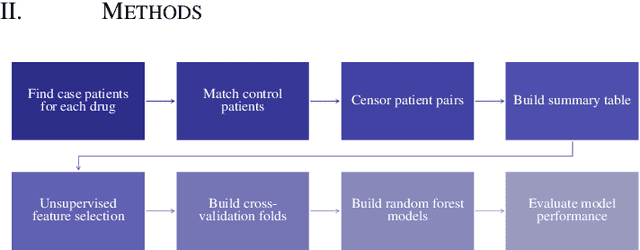
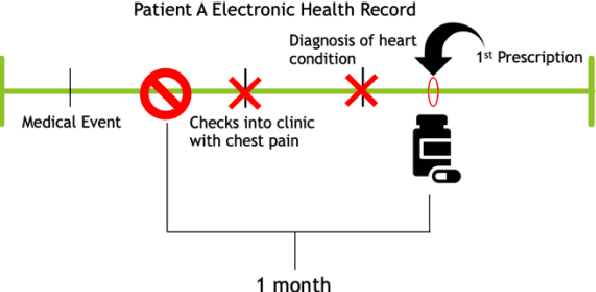
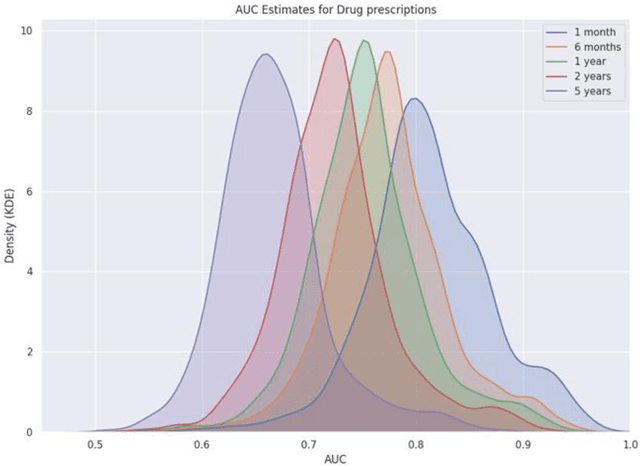
Abstract:Accurate estimation of healthcare costs is crucial for healthcare systems to plan and effectively negotiate with insurance companies regarding the coverage of patient-care costs. Greater accuracy in estimating healthcare costs would provide mutual benefit for both health systems and the insurers that support these systems by better aligning payment models with patient-care costs. This study presents the results of a generalizable machine learning approach to predicting medical events built from 40 years of data from >860,000 patients pertaining to >6,700 prescription medications, courtesy of Marshfield Clinic in Wisconsin. It was found that models built using this approach performed well when compared to similar studies predicting physician prescriptions of individual medications. In addition to providing a comprehensive predictive model for all drugs in a large healthcare system, the approach taken in this research benefits from potential applicability to a wide variety of other medical events.
Privacy-Preserving Collaborative Prediction using Random Forests
Nov 21, 2018

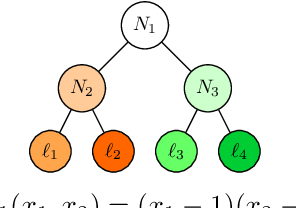
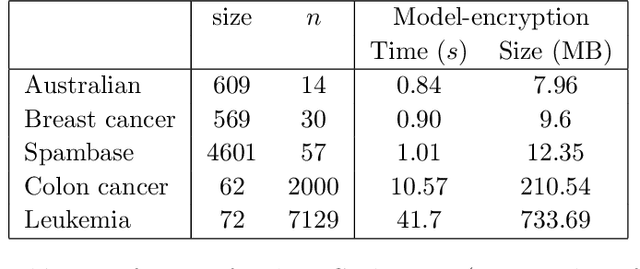
Abstract:We study the problem of privacy-preserving machine learning (PPML) for ensemble methods, focusing our effort on random forests. In collaborative analysis, PPML attempts to solve the conflict between the need for data sharing and privacy. This is especially important in privacy sensitive applications such as learning predictive models for clinical decision support from EHR data from different clinics, where each clinic has a responsibility for its patients' privacy. We propose a new approach for ensemble methods: each entity learns a model, from its own data, and then when a client asks the prediction for a new private instance, the answers from all the locally trained models are used to compute the prediction in such a way that no extra information is revealed. We implement this approach for random forests and we demonstrate its high efficiency and potential accuracy benefit via experiments on real-world datasets, including actual EHR data.
 Add to Chrome
Add to Chrome Add to Firefox
Add to Firefox Add to Edge
Add to Edge